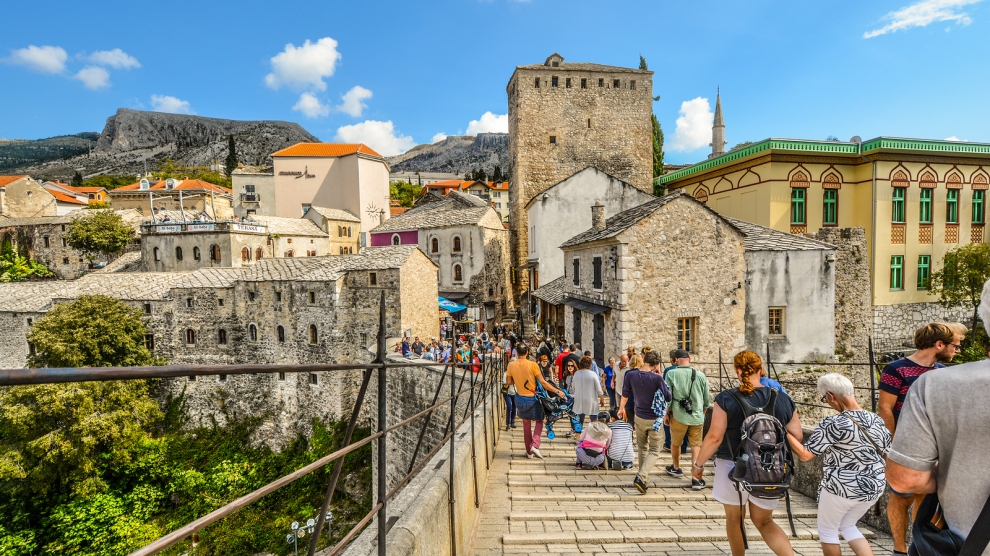Being a young politician in the Balkans is challenging. If you add the fact that I am from Bosnia and Herzegovina into the mix, then to others it can be seen as a mission impossible. And we all know that the Balkans is always interesting when it come to the nature of its political culture. But here I am, aged 25, living in Bosnia and Herzegovina, in the city of Mostar, a Master of International Business and Finance and the youngest vice-president of a Social Democratic Party (SDP) in the Balkans.
I started in politics as a local activist, when I was 17. In 2014, when I was 21, I was elected as vice-president of the SDP, just two months after my party lost the elections. Everyone thought that election was the end of the SDP, but introducing young people into the party leadership has made it the leading opposition party in Bosnia.
If young people can help a political party recover, then young people can help the state recover too.
Bosnia and Herzegovina has the most complex political system in the world. I chose the SPD because it answered my frustrations about a system in which my generation lives, and is increasingly, unfortunately, leaving. As a young politician I have responsibly to try to change the system, to make create a better state for the generation which is about to have a family here, as well as for our parents and grandparents: a generation who gave us everything and who decided to stay here during 1990s despite all the challenges they had to face.
Unfortunately, over the last four years Bosnia and Herzegovina has never faced so many issues. Young people are leaving, corruption is so widespread that it has become part of the culture, education is divided based on nationality, the pension fund has collapsed, there is no infrastructure, people are frustrated in their everyday life because their lives are based on their ethnicity, not on their education and capabilities.
My struggle is real, and started before I joined a political party.
As I already mentioned, my country has a very complex political system and if we add to that the fact that Bosnia is not one country but three, divided into ethnic groups and not a country of all its citizens then we face not just a state crisis, but also an identity crisis. That is the consequence of the constitution, written as part of the Dayton Peace Agreement, which limits normal development.
It pushes people to declare themselves according to their ethnicity in order to survive and automatically raise generations which has the wrong values and does not think outside of the box. My biggest struggle is with the educational system, which is a core of every society, but here education is divided. We have the shameful phenomenon of “two schools under one roof,” a shame not just for us but for the whole of Europe, where kids are divided into different classes in separate parts of schools based on their ethnicity.
More than 80.000 youths have left Bosnia and Herzegovina over the past two years, because they cannot find employment, because of the high level of corruption, a lack of respect for human rights and for the simple fact that Bosnia is today one of the poorest countries in Europe.
The next elections are in October 2018. This is when the future of this country will be decided. This election will show can we start living in 21st century: politics in Bosnia over the past 20 years have been rooted very much in the 1990s, with nationalist parties and politicians. Now, however, the generation born in 2000 will have the right to vote, and I think this year we should start thinking about future and not about the past. We cannot agree on the past, but maybe we can agree on the future. My goal is to make this country a place where differences are respected, and to bring back optimism and the will to stay in Bosnia and Herzegovina.
If people continue to leave, for whom are we building a future?
—
The views expressed in this opinion editorial are the author’s own and do not necessarily reflect Emerging Europe’s editorial policy.






Add Comment